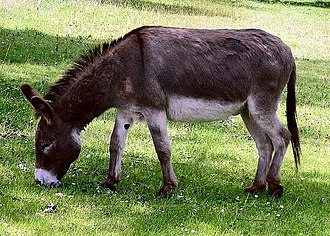Islamabad, July 4: Pakistan has finalised the protocols for exporting donkey skins and meat to China, the Senate Standing Committee on Commerce was informed.
The additional secretary of the ministry, Ahsan Ali Mangi, disclosed this to the committee chaired by Senator Anusha Rahman.
The committee was also briefed on the attached departments of the commerce division and their performance review.
Mangi stated that in addition to the donkey skin and meat protocols, the ministry has also finalized export protocols for onions, potatoes, and chilies to China.
Pakistan has the third largest donkey population in the world.
Donkeys are highly prized in China, especially for their hide which is used to manufacture traditional Chinese medicines. Gelatin made from donkey skin has been long considered to have medicinal properties in China, traditionally being thought to nourish the blood and enhance the immune system.
Donkey skins are boiled in China to produce a gelatin called ejiao used in traditional medicine believed to stop aging and boost libido.
Pakistan has more than five million donkeys, while China stands at number one.
In 2021, global equine advocacy group Brooke had said that Pakistan was illegally exporting donkey skins to China despite an official ban on the business.
Africa has also become a fast-growing industry to supply donkey skins to China
Brooke is an international charity that protects and improves the lives of horses, donkeys and mules that provide people in the developing world the opportunity to work their way out of poverty.
Once a luxury for the elite, ejiao — that comes as a tablet to dissolve in water or in anti-aging cream — is widely used by China’s increasingly wealthy middle class and diaspora. Prices have surged to over $780 a kilogram from around $30 in 2000, according to Chinese state-run media reports.
A few years ago, the Punjab government had set up a donkey farm in Okara district to export donkeys to help with the country’s drying foreign cash reserve.
The government-owned farm was for rearing donkeys of “great breeds” including American, to increase the export to China and other countries. China earlier used to import donkeys from Niger and Burkina Faso, until the two West African countries banned their export.








